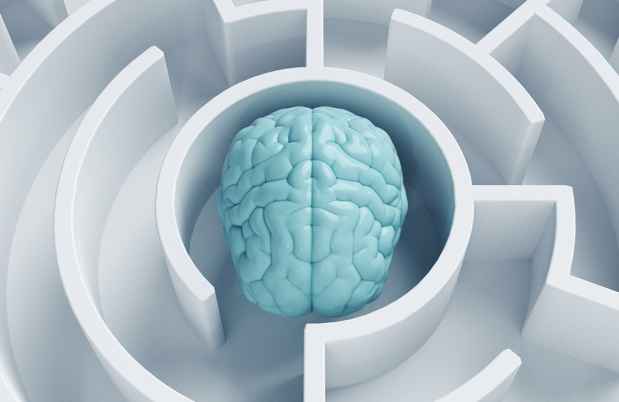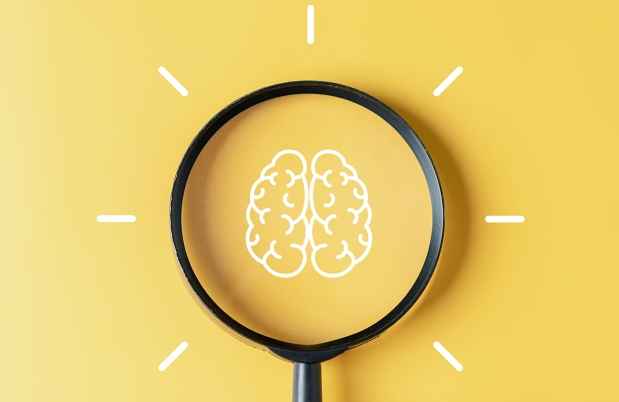Transcranial Magnetic Stimulation (TMS) Service
Support for individuals who struggle with depression. Call us today to find out if TMS is right for you.
The Transcranial Magnetic Stimulation (TMS) Service is dedicated to improving the quality of life for individuals who are struggling with mental illnesses and have not found relief from symptoms using other forms of treatment.
Our program uses TMS to treat severe, treatment-resistant depression and is particularly helpful for people with depression and other mental health challenges that have not improved with medication and talk therapy. TMS has also been proven effective to help individuals with obsessive compulsive disorder.
McLean’s TMS Service is available in two locations. In Belmont on McLean’s main campus, the service is located within the ECT/TMS suite in the de Marneffe Building. In Middleborough, the Neurotherapeutics Suite is at our Oak Street site. Visit our Maps & Directions page for more information.
Two treatment options are available:
- A standard course of TMS is 36 outpatient treatments (usually Monday through Friday, excluding holidays), over seven weeks and is available at both our Belmont and Middleborough locations
- Accelerated protocols for depression are now available at our Belmont location, with outpatient treatments condensed into five days, making it a viable option for those who work or are in school
Positive response rates to TMS are up to 60% in individuals with depression. Response rates with accelerated TMS protocols are even higher (up to 85%). For OCD, around 45% of individuals report a partial reduction in symptoms.
Talk to your treatment provider or contact us today to find out if TMS can help you or a loved one.
What Is TMS?
Learn more about transcranial magnetic stimulation and what to expect from treatment if TMS is right for you.
Treatment Approach
Transcranial magnetic stimulation (TMS) involves placing an electromagnetic coil on the scalp, while high-intensity current is rapidly turned on and off in the coil to produce a magnetic field. The magnetic field activates specific areas of the brain associated with either depression or OCD.
TMS is noninvasive and requires no anesthesia or sedation. The procedure typically lasts less than an hour. During this time, patients are awake, alert, and comfortable.
There are no restrictions on work or other activities before the treatment. Because no medications are administered, there are no physical side effects or cognitive after-effects (memory difficulty or ability to concentrate). Therefore, patients can return immediately to regular activity.
An initial assessment will determine the appropriate dose of the magnetic pulse and the exact area of the brain the coil should target. As the treatment progresses, the clinician will conduct periodic re-evaluations of the dose level and coil placement.

During a treatment session, the patient sits in a comfortable reclining chair. A headset is applied to deliver the magnetic stimulation. Ear plugs are also provided to decrease exposure to the loud clicks associated with each magnetic pulse.
The patient relaxes during the treatment, which lasts between 5-20 minutes depending on the treatment protocol, and/or engages in therapeutic discussion with the TMS technician. The patient is monitored continuously to ensure correct coil positioning and comfort level.
Our collaborative team approach is aimed at maximizing the effectiveness of psychotherapy, medication management, and psychosocial treatments already offered at McLean with emerging techniques, technologies, and interventions like TMS.
Learn more about how the TMS Service’s new accelerated protocol is helping patients
Appointments
The Transcranial Magnetic Stimulation (TMS) Service is ideal for individuals with severe or treatment-resistant depression or OCD.
For further information about our program, please contact our admissions coordinator:
Belmont
Phone: 617.855.2360
Middleborough
Phone: 508.923.5445
Referral Form
Referring clinicians should fill out the TMS Service Referral Form so that we may determine whether the program is a good fit for the individual and gather the appropriate patient information. A completed referral form is required prior to treatment.
Cost
Coverage for TMS by public and private insurers varies greatly.
While McLean Hospital accepts Medicare, Massachusetts Medicaid, and many private insurance and managed care plans, it is best to contact us or your insurance provider to determine TMS coverage. Insurance precertification according to eligibility criteria is required.
The accelerated protocol is not covered by insurance. Out-of-pocket cost for accelerated TMS is $25,000. Our clinic can assist patients with documentation required to seek insurance reimbursement.
More information on insurance providers accepted by McLean Hospital may be found on the Mass General Brigham website. You may also find it beneficial to review McLean’s patient billing and financial assistance information.
Treatment Team
Program Leadership

Paula Bolton, MS, CNP, ANP-BC, Program Director
A nurse practitioner in the Internal Medicine Department at McLean Hospital for more than 25 years, Ms. Bolton has focused on health promotion and disease prevention for psychiatric patients. She was instrumental in both the expansion of the inpatient and outpatient Electroconvulsive Therapy (ECT) Service and the development of the Transcranial Magnetic Stimulation (TMS) and Ketamine Services on the Belmont and Middleborough campuses.

Joshua C. Brown, MD, PhD, Medical Director
Dr. Brown is also the director of Transcranial Magnetic Stimulation Research in McLean’s Division of Depression and Anxiety Disorders and directs the Brain Stimulation Mechanisms Laboratory. His research focuses on the underlying brain mechanisms of rTMS, with the aim of maximizing the benefits of TMS for brain disorders. Dr. Brown also works to advance TMS through service on the Clinical TMS Society’s board of directors, as a member-at-large and as co-chair of the society’s research committee.

Stephen J. Seiner, MD, Medical Director, Psychiatric Neurotherapeutics Program
As director of McLean’s Psychiatric Neurotherapeutics Program, Dr. Seiner oversees the hospital’s ketamine, electroconvulsive therapy, and transcranial magnetic stimulation services. He is also an assistant professor of psychiatry at Harvard Medical School. Dr. Seiner has published book chapters and journal articles, and has lectured in multiple venues.
Staff and Associates
An experienced staff of psychiatrists, registered nurses, and trained technicians work together to provide an optimal TMS experience for patients undergoing the procedure for depression that has not been adequately treated with medication and/or therapy.
Frequently Asked Questions
Where is Transcranial Magnetic Stimulation Service located?
McLean’s TMS Service is available in two locations.
In Belmont on McLean’s main campus, the service is located within the ECT/TMS suite in the de Marneffe Building.
In Middleborough at our McLean SouthEast campus, the Neurotherapeutics Suite is at our Oak Street site.
For more information on directions, parking, and local accommodations, please visit our Maps & Directions page.
Who benefits most from Transcranial Magnetic Stimulation?
TMS is an outpatient service that focuses on treating those who are struggling with depression, or a depressive episode, and are not responding to medications and/or psychotherapy. TMS can also be used as an added therapy when medications and therapy alone are not enough.
Is family involved in treatment?
Family can be involved in the consultation for TMS and are welcome in the TMS suite. Family members are invited to meet with the doctor periodically to review the treatment plan. In addition, nurses are available at each appointment to talk with family members and answer questions.
Is smoking permitted?
Smoking is allowed in designated outdoor areas only. No smoking is allowed inside any of our buildings.
Are cell phones and other electronics allowed?
Cell phones are allowed in the TMS suite, but we have very poor cell signal. Staff can assist with placing a call as needed. We are just below the cafeteria—which does get better signal.
Can former patients access their medical records?
All requests for medical records should be directed to McLean’s Health Information Management Department.
Are support groups offered?
To complement our programs’ services and encourage individuals’ initiatives in their own treatment course, many self-help groups are hosted by McLean.






